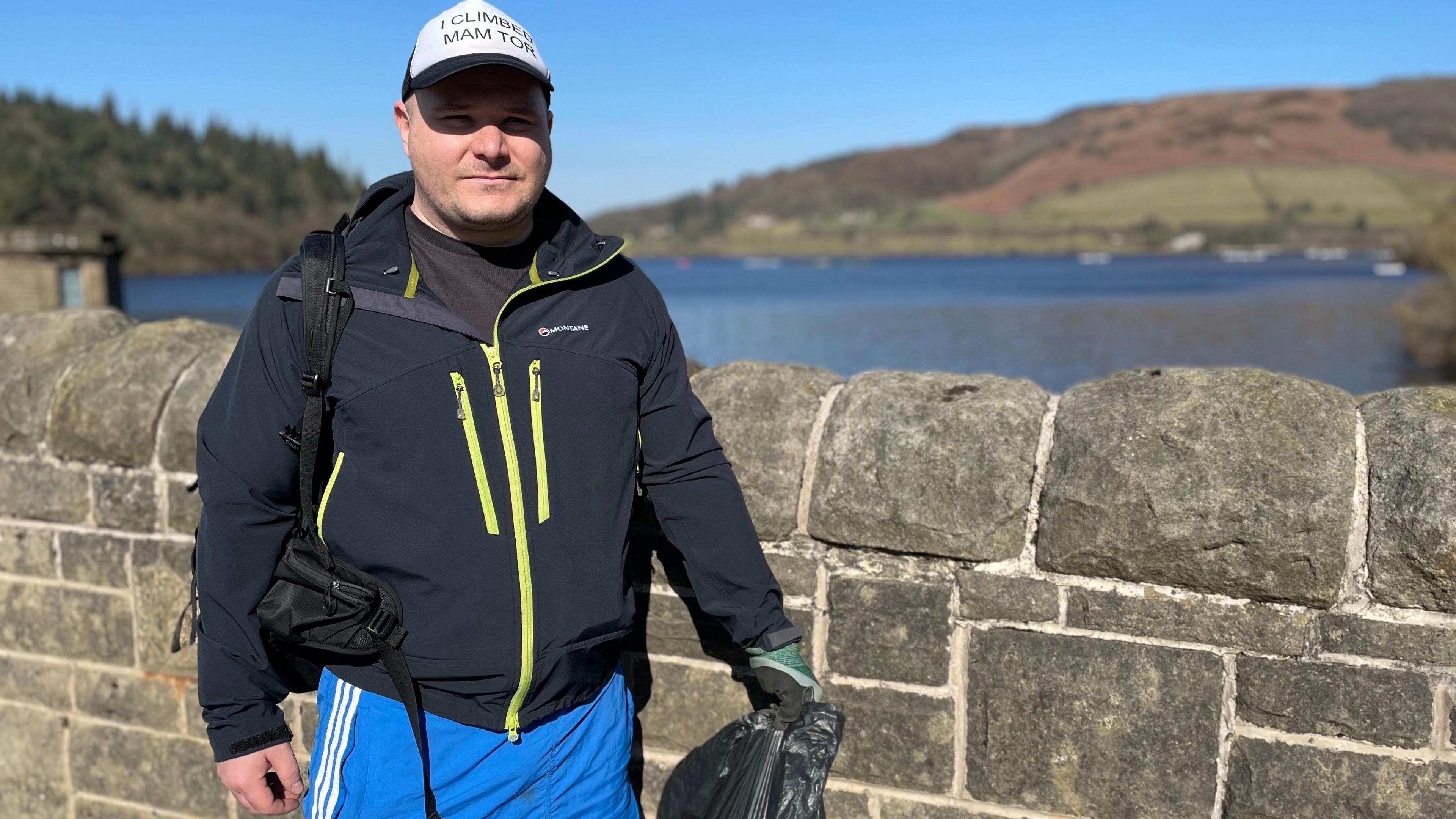Will new plans solve parking woes in Peak District tourist hotspot?
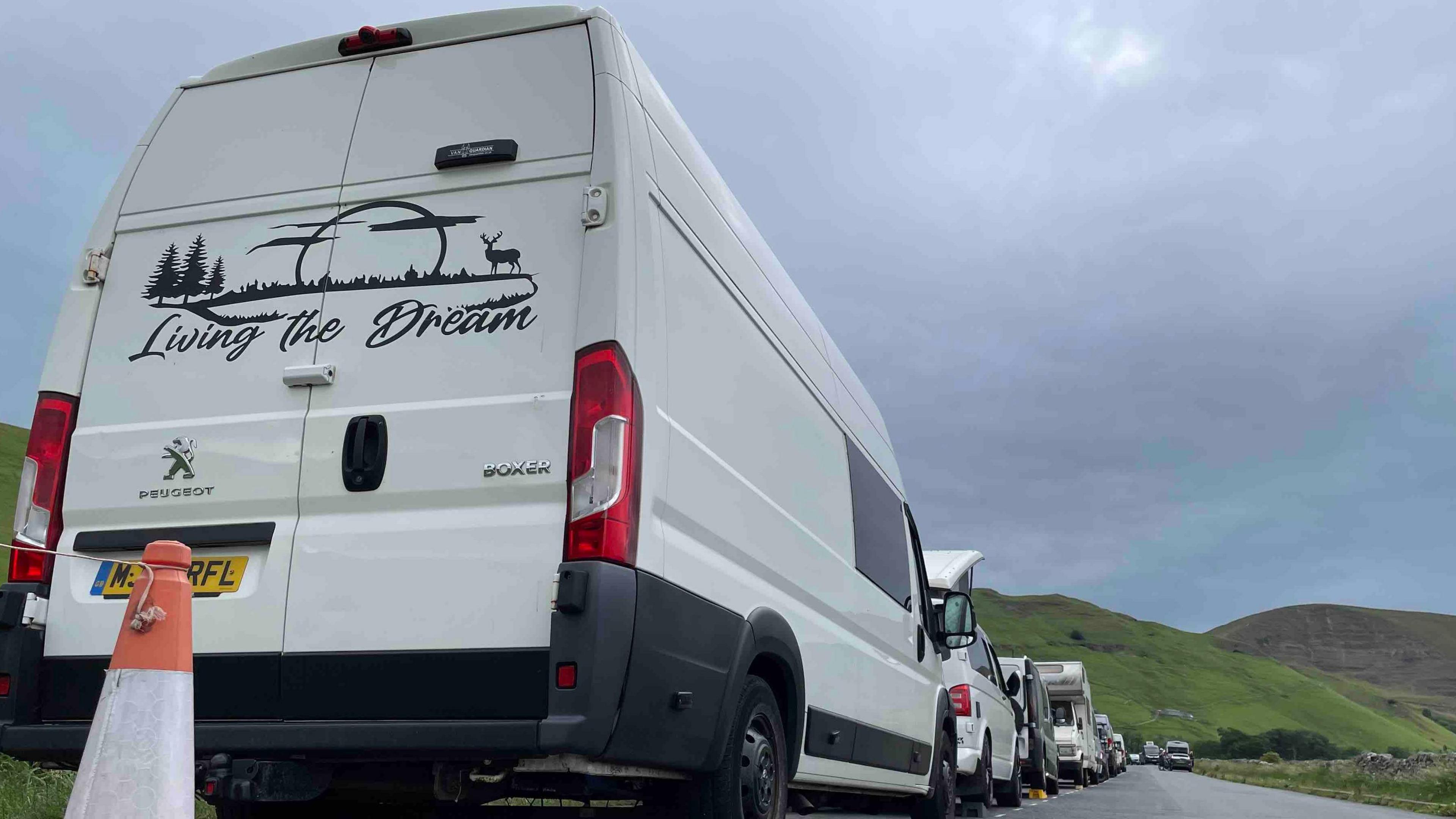
Old Mam Tor Road has become increasing popular with campervans
- Published
The Peak District village of Castleton offers some of the national park's most spectacular views.
Its rural location - next to the impressive Mam Tor - makes it an ideal spot to escape the hustle and bustle of modern life.
But there is a problem.
Growing numbers of visitors in recent years - thought to have been prompted by TikTok videos and the increasing popularity of campervans - have led to major parking problems, causing tension between tourists and locals.
Now Derbyshire County Council is fighting back.
The authority hopes a raft of new planned parking restrictions - comprising a mixture of "red routes", double yellow lines and parking bays with time restrictions - will ease the situation and make life easier for its residents.
But will the new approach work?
Much of the ire from locals appears to be focused on Old Mam Tor Road, which runs out of the village up Mam Tor and is known as the "Broken Road", because it was split by a landslide.
In recent years, it has become a magnet for motorhomes.
James Spence has lived in Castleton for seven years after moving up from Bedfordshire.
He told the BBC he had come across toilet paper, human waste and loo chemicals left behind by those embracing the "campervan life".
"It's just not decent human behaviour when you are visiting a beautiful, picturesque part of the world," he said.
The 54-year-old said he had spotted some campervanners leaving toilet paper and excrement behind trees.
"Some of these vans haven't got a chemical toilet, so they've got to go to the toilet somewhere," he said.
Mr Spence said any measure was better than nothing, but he felt concerned there were no restrictions planned for the top end of the Broken Road.
"A lot of people turned up during Covid and I don't think some of them ever left. They stay up there for longer periods of time," he said.
"There is still concern about emptying chemical toilets and waste and rubbish that tends to pile up around there."
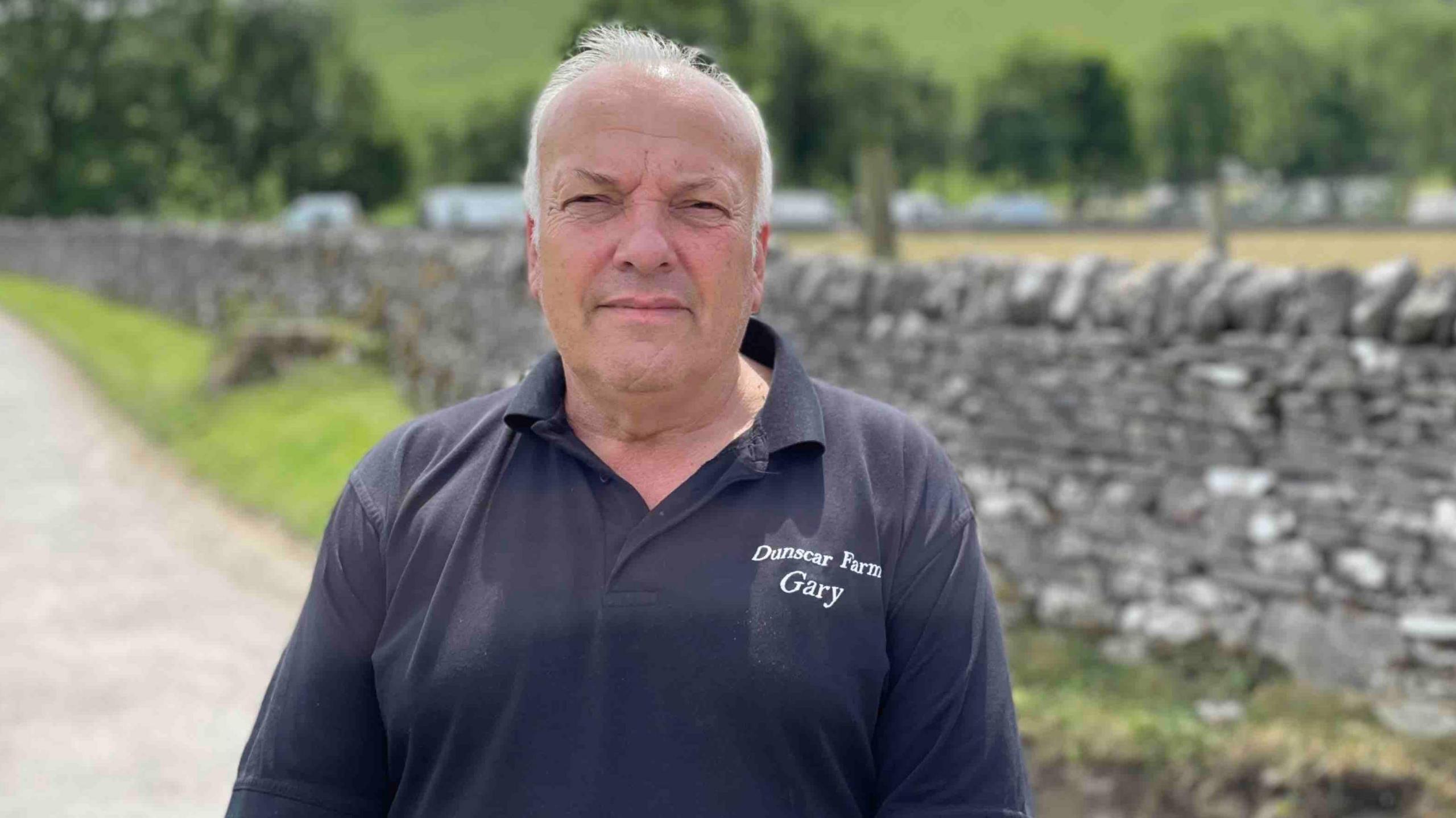
Farmer Gary Glennester says his neighbour's young child found a sanitary towel near the campervans
Gary Glennerster runs Dunscar Farm, which looks across Old Mam Tor Road.
"There is nothing wrong with the people and they are not committing a crime, but it is the sheer volume of them. It's an eyesore," he said.
He thinks the council should be charging people to park on the road, because he says their vehicles contribute little to the local economy.
Meanwhile, Jonnie Collins – from the campaign group Concerned for Castleton – says two volunteers go to the area where campervans are gathered on Broken Road once a week, and usually return with at least two bins bags full of rubbish.
He believes the county council will have a major challenge enforcing the planned parking restrictions because staff already have a large area to cover.
"I accept walking around cities or towns, there is rubbish but other than volunteers, there is nobody to clear it up and what annoys me most is we know the hotspots where there is excrement - but the authorities don't seem to be willing to try and stop it happening," he said.
High Peak Borough Council, which is responsible for bins in the area, said it carried out "year-round campaigns to educate people and encourage responsible visits".
"We'll continue to work with our partners to support people in Castleton with the impact caused by a very high volume of visitors to the village," a spokesperson added.
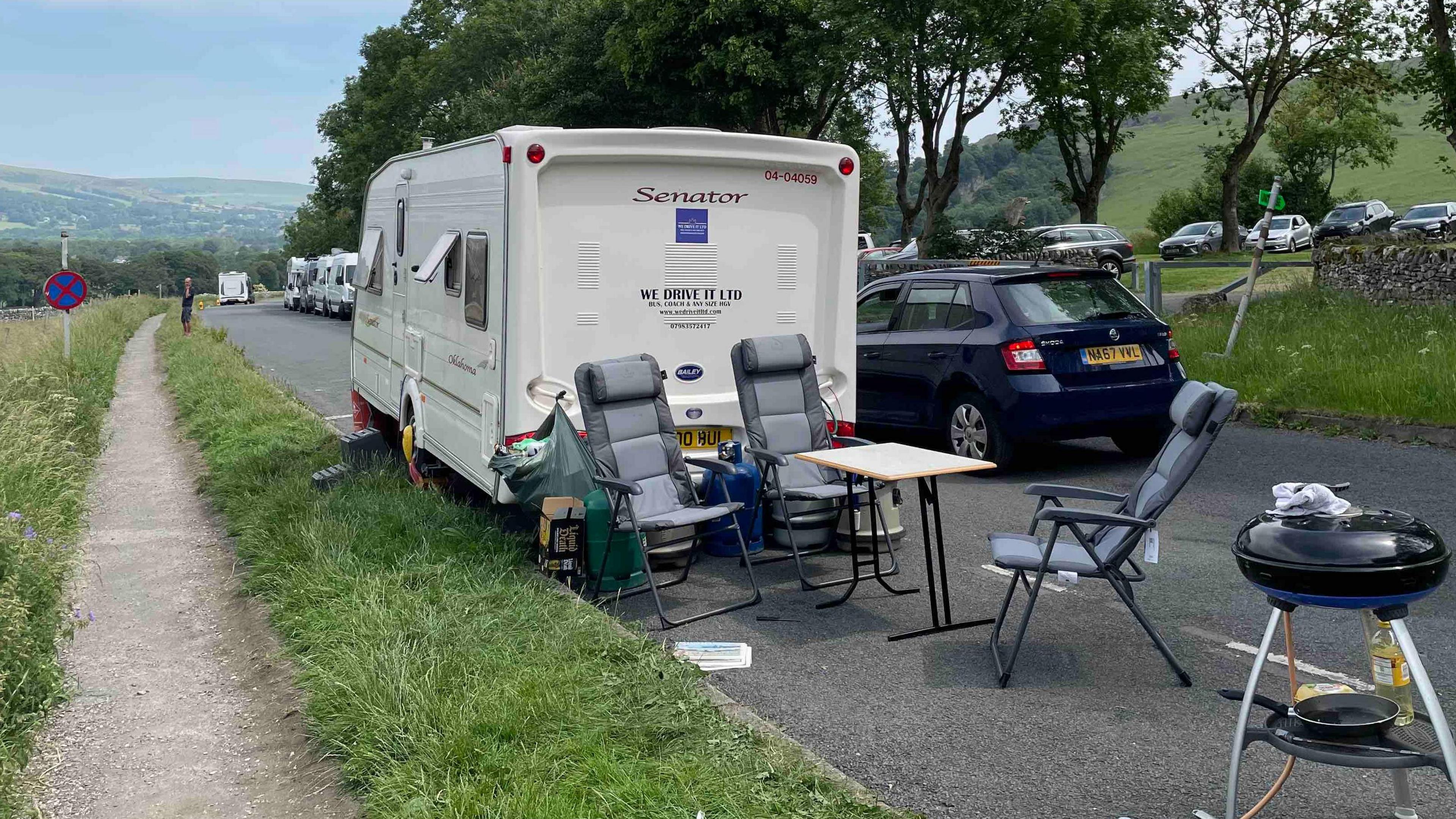
Some campervanners enjoy having a barbecue with a view
Figures obtained by the National Caravan Council - from the Driver and Vehicle Licensing Agency (DVLA) - show 16,447 motorhomes were registered in 2024 - almost double the 8,733 recorded in 2014.
Countries around the world, including the UK, have seen a large increase in recent years of people living and travelling in converted vans, with a spike in the search term #vanlife on social media.
Martin Dorey, an author and environmentalist, has written books about camper vans and presented BBC Two programme One Man and His Campervan - about travelling across Europe in one of the vehicles.
He says campervanning became much more popular during the Covid pandemic, because hotels were closed and camper vans are self-contained.
"I think social media has also got something to do with it," Martin added.
"But I am not going to blame it. Social media has brought more things to the attention of more people, whether it's vans, whether it is sport or whatever.
"I don't think we should demonise #vanlife just because it has got a hashtag. It's always been popular."
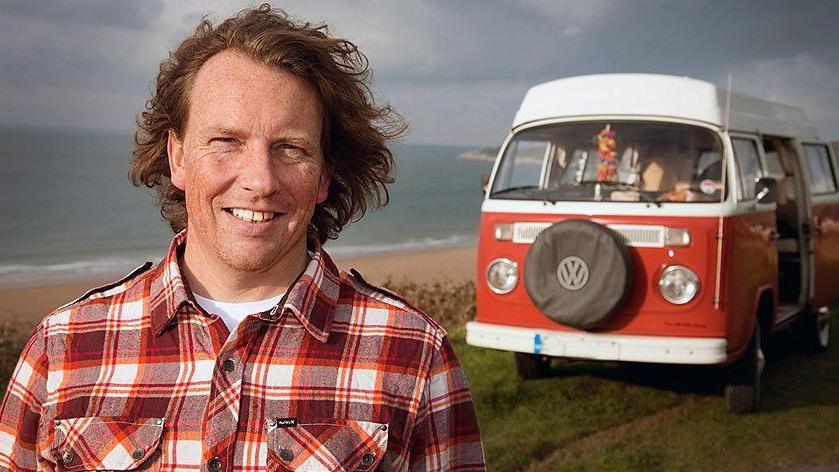
Author Martin Dorey said the #vanlife social media trend shouldn't be demonised
Bob Riley stays on the Broken Road two or three times a year in his fully-fitted Fiat Ducato van, which cost him £85,000.
The 64-year-old told the BBC he had never dropped litter, and had not noticed any of the problems people in Castleton were reporting.
"They have obviously seen something that I haven't," he said.
"I have seen lots of friends and family having a good time and leaving no trace.
"It's a good life, if you respect the area, respect the locals and do the right thing."
The county council's public consultation on the new parking restrictions is due to conclude on 8 August before the authority decides whether to implement the plans as they are or revise them.
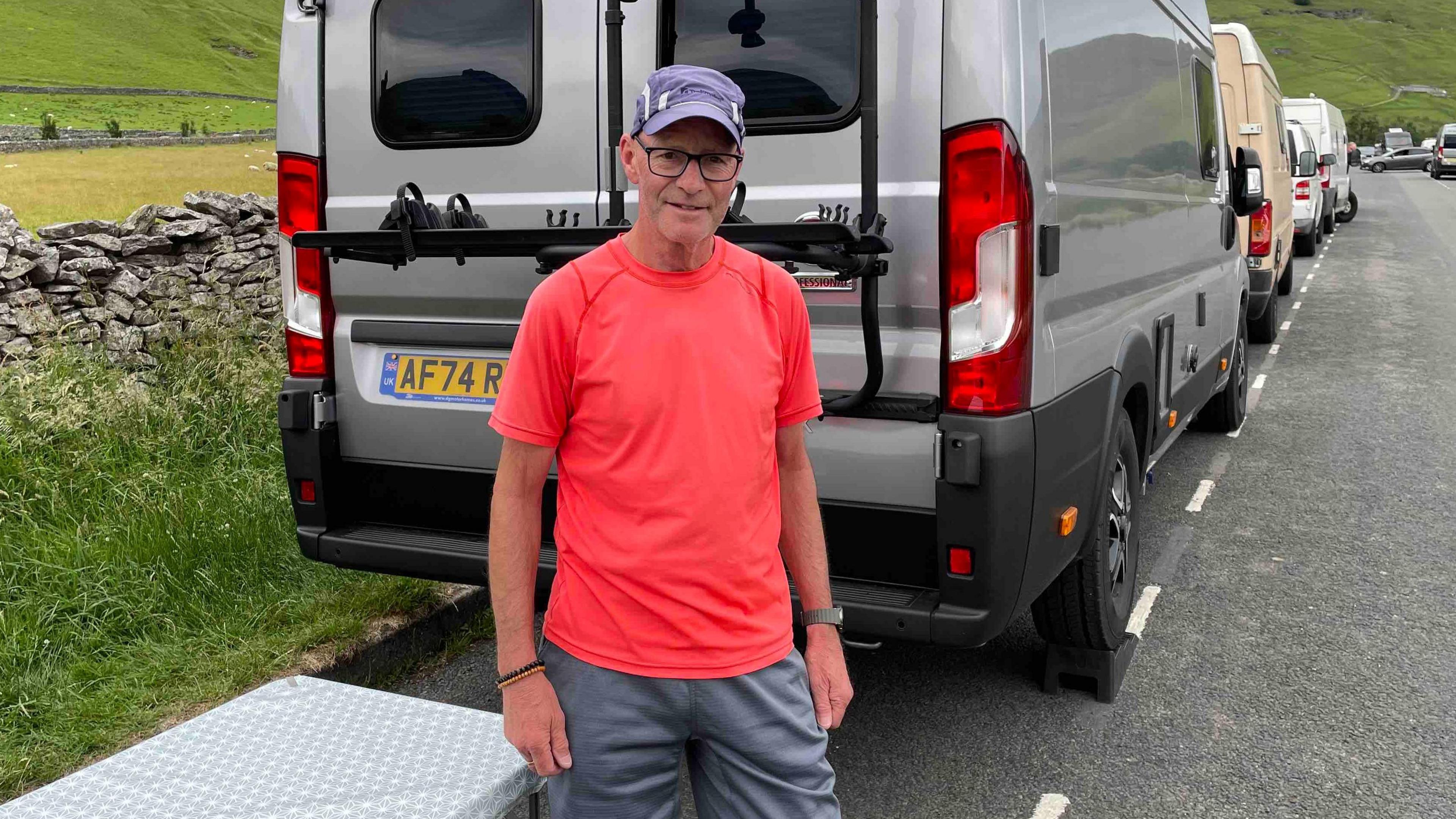
Bob Riley regularly visits Castleton in his campervan - but says he is respectful of the area
Charlotte Hill, cabinet member for potholes, highways and transport, said: "Our road safety team have been working with Castleton Parish Council to try and identify ways to better manage parking in the village.
"Castleton is a beautiful place to visit, but the roads were never designed for the kinds of traffic volumes - and the size of vehicles - that we see today.
"For the past few years, there have been concerns about inconsiderate parking, and some motorists not understanding the restrictions that are currently in place.
"We hope that our proposals will help local people, make things clearer for visitors and reduce disruption to help make sure visitors enjoy the beauty of our county.
"Alongside our proposals to restrict parking, we will also look to enforce the restrictions robustly with our team of parking attendants, to ensure traffic can move safely and smoothly in the area, reducing congestion and unnecessary delays."
It is a tricky balancing act for the council as it tries to keep residents and visitors happy - and the coming months will tell us how successfully it has managed to do this.
The full list of parking proposals can be found here, external.
Get in touch
Tell us which stories we should cover in Derby
Follow BBC Derby on Facebook, external, on X, external, or on Instagram, external. Send your story ideas to eastmidsnews@bbc.co.uk, external or via WhatsApp, external on 0808 100 2210.
Related topics
- Published17 July
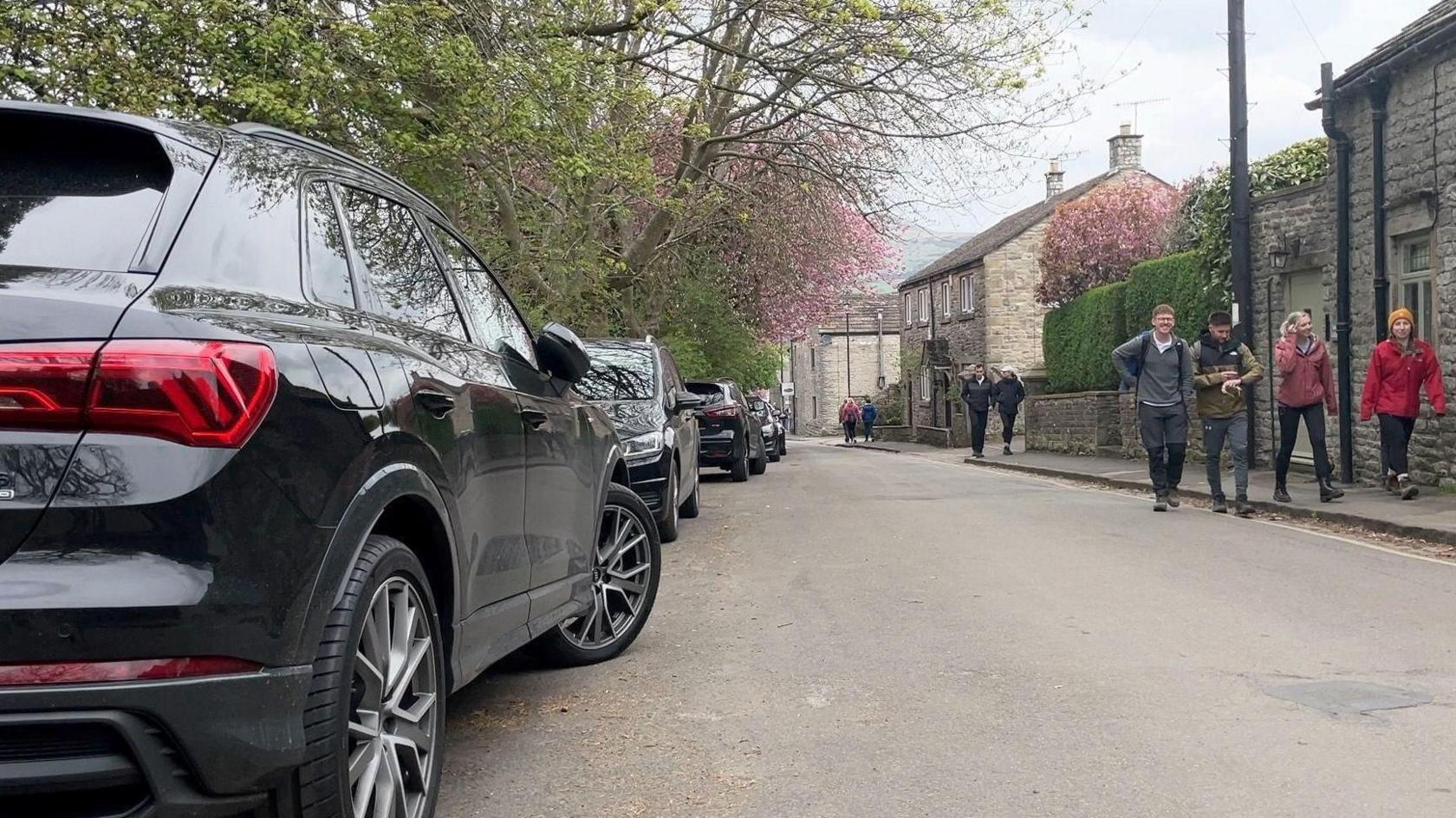
- Published4 May
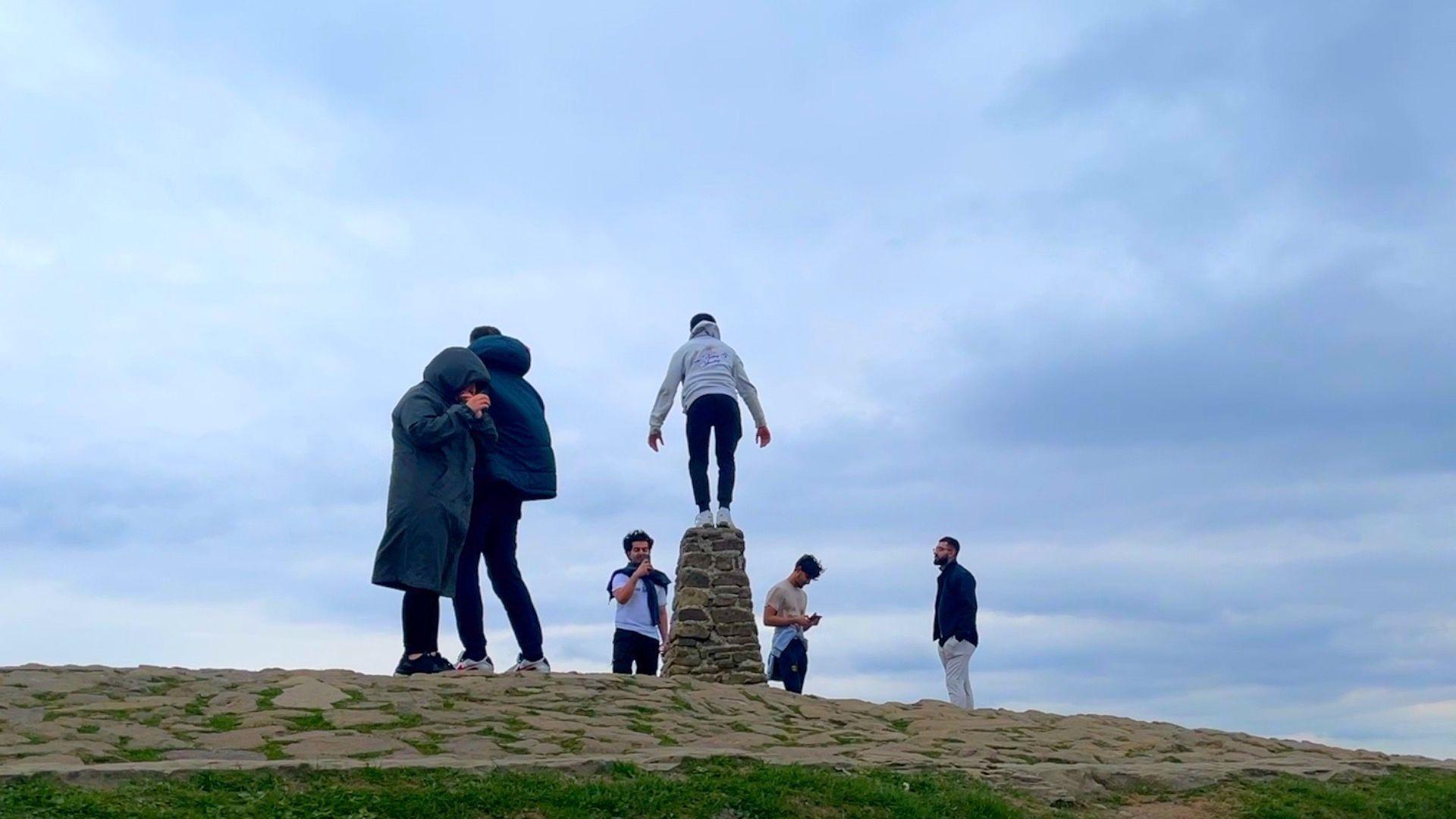
- Published28 February
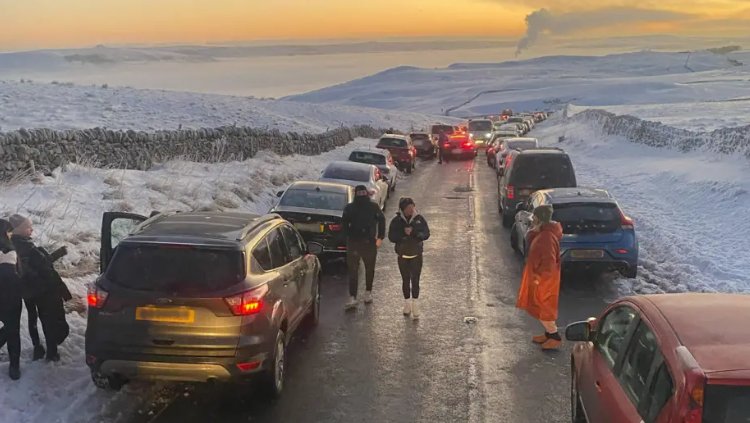
- Published25 March
